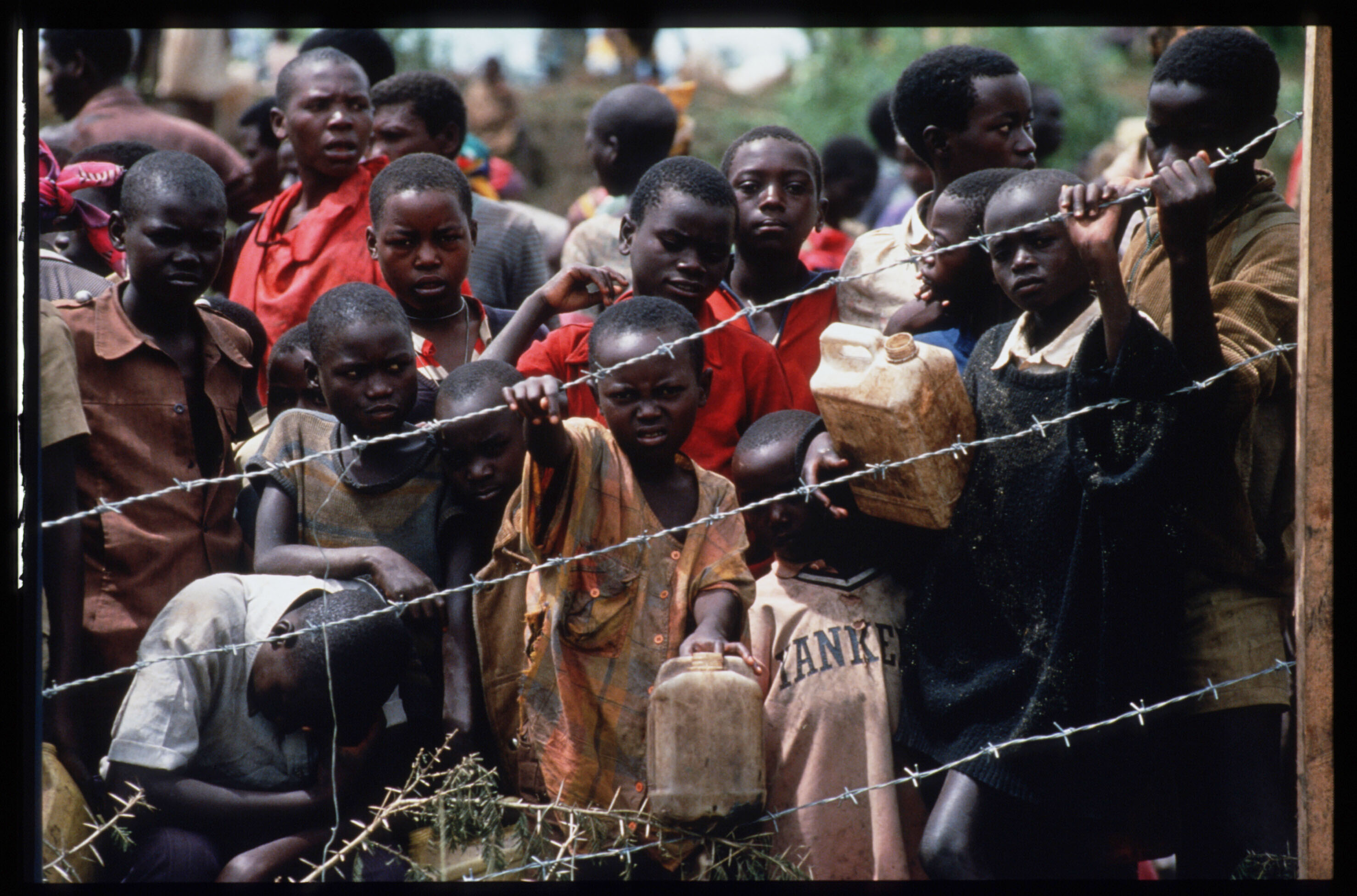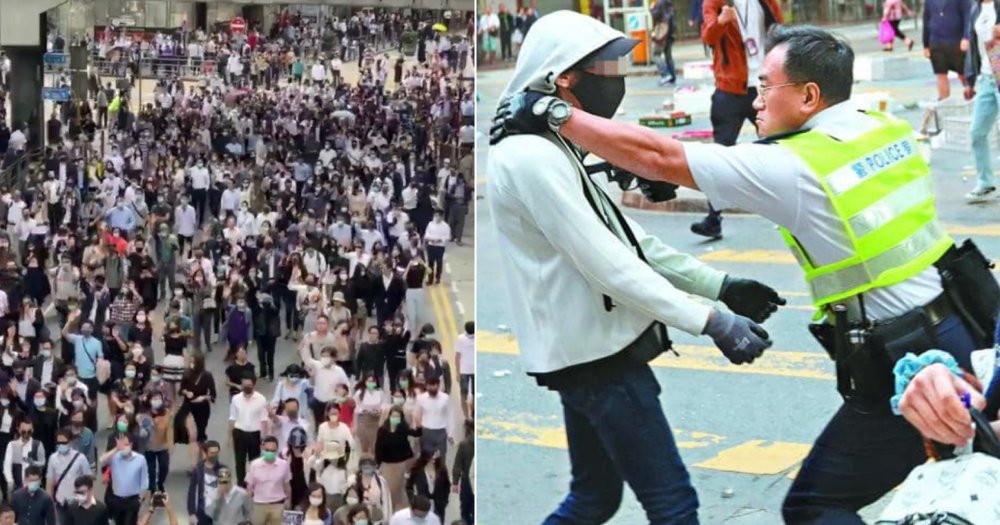Protesters in the Chinese Special Administrative Region (SAR) of Hong Kong have had many names bestowed upon them over the past six months of protests.
Protesters have been called "rioters", "thugs", "hooligans", "terrorists", and "cockroaches" by their critics.
Not human, just roaches
Among these terms, "cockroaches" is probably one of the most commonly used by detractors on the participants of the movement.
It has been employed multiple times to various effect, by both the Hong Kong police officers and Chinese state media to refer to demonstrators.
Police shouting this to people up on the bridge up by the IFC/airport express: “Remember you are not even worthy to be human, you are just an animal. You’re an animal, you’re a cockroach.” (Thanks @annakamtw for translation) pic.twitter.com/hTIzZ4FjC0
— Shibani Mahtani (@ShibaniMahtani) November 2, 2019
In which a Hong Kong police officer points at elderly citizens (members of a volunteer group called "Protect the Children)" with his baton and calls them cockroaches. (8 September, Mong Kok. Via HKU Campus TV) https://t.co/uq2HZmXNvf pic.twitter.com/hjflD6IcrH
— Mary Hui (@maryhui) September 9, 2019
9月6日晚上,警察以「曱甴」指稱市民。
— The News Lens HK 關鍵評論網 香港 (@thenewslenshk) September 7, 2019
近月已多次有傳媒拍到類似片段,示威者和記者均被警察罵為「曱甴」,這是掌握公權力、持槍執勤的警察不應使用之仇恨語言。
即使在記者會上多次被問到這問題,警方高層至今未有表明禁止警員使用「曱甴」。 #antiELABhk #HKPolice #HongKongPolice pic.twitter.com/yVxa6mJCsQ
Ok so the Hong Kong Facebook page of Xinhua news agency just branded people as cockroaches. Does that ring a bell to the Rwanda genocide and Hitler's treatment to Jews? #FreeHongKong #BoycottChina pic.twitter.com/AOhd68WNGL
— jajabrinks (@hejabvb009) August 17, 2019
People in Singapore who are less sympathetic to the protesters' cause, have also been guilty of using the term too.
On the other hand, demonstrators have called the police "dogs".
While the exact intention behind the use of such a term is not known, analysts say referring to humans as "roaches" is a convenient act of dehumanisation.
The name-calling reinforces the perception that these people do not deserve to be treated like humans, and so do not need access to the same human rights afforded to all people.
Why? pic.twitter.com/OMYZJhHJbU
— DarkCL (@darkcl_dev) November 11, 2019
The history of name-calling is fraught with examples that ended very badly.
Here are some of those instances in history where large groups of people were collectively called "cockroaches", as symbolic violence gave way to the perpetuation of more physical violence, to the detriment of entire societies.
More importantly, name-calling from all sides of a conflict is a prelude to violence, as it encourages an escalation of open tit-for-tat and the fomenting of greater, full-on unrest, as well as retaliatory action.
Hutus in the Rwandan genocide
In 1994, about 800,000 Rwandans, mostly of the Tutsi minority, were murdered in a genocide over the course of 100 days.
Prior to the genocide, the use of dehumanising language had already been entrenched in the country's sociopolitical discourse as far back as 1959, when a Hutu political leader called for the extermination of the Tutsi "vermin", according to The Atlantic.
 Youths gather behind the fence of a refugee camp May 3, 1994 at the border of Rwanda and Tanzania. Hutu refugees have fled to Tanzania across the Akagara River in order to escape reprisals by Tutsi rebels. (Photo by Scott Peterson/Liaison)
Youths gather behind the fence of a refugee camp May 3, 1994 at the border of Rwanda and Tanzania. Hutu refugees have fled to Tanzania across the Akagara River in order to escape reprisals by Tutsi rebels. (Photo by Scott Peterson/Liaison)
This set the precedent for the Rwandan government to repeatedly stir up nationalist sentiments against the Tutsis, which eventually led to a senior politician in the then-ruling Hutu party denouncing the country's Tutsis as "cockroaches" at a rally in 1992, Foreign Policy reported.
Anti-Tutsi propaganda was also fuelled by a Rwandan radio station, RTLM, which was allied with the then-ruling Hutu government.
It had described the Tutsis as inyenzi (cockroaches) and inzoka (snakes).
Such language is said to be part of the dehumanisation process, where the Hutus feel less remorse about killing them.
Nazis during the Holocaust
The Washington Post (WP) reported that the use of the term "cockroaches" was also featured in Nazi political rhetoric against Jews, along with the imagery of "rats" and "snakes".
It was a point that activist Joshua Wong picked up in August, when he took to social media to slam the police for using such language.
David Livingstone Smith, a professor of philosophy at the University of New England, told WP that the repeated use of the term "cockroach" could eventually lead to a "deeper kind of genuine dehumanisation".
"You call people cockroaches a lot, you start thinking that they are subhuman," he said.
Imperial Japanese Army to the Chinese
Japanese soldiers, during the time of the Second Sino-Japanese War, used the term "shina" to refer to China, and "shina-jin" to refer to the Chinese people.
The term "shina pigs" was used as well.
Interestingly, this term has been used by pro-independence Taiwanese against the pro-Beijing political party Kuomintang and its supporters too.
Members of Japan's notorious Unit 731, which conducted unspeakable human experiments on Chinese civilians, referred to the Chinese as inanimate objects, and called them "logs", or maruta in Japanese.
By calling their victims "logs", it was thought that killing them was as easy as cutting down a tree.
Related article:
Top image adapted via @studioincendo & Andrew Renneisen/Getty Images
If you like what you read, follow us on Facebook, Instagram, Twitter and Telegram to get the latest updates.
